Taltos lotmw-3 Read online
Page 40
And then she walked through the silent corridors. Press the button marked M, they had said, and you will see the dolls.
The dolls. What did she know of dolls? In childhood they had been her secret love, one which she had always been ashamed to confess to Ellie and Graham, or even to her friends. She had asked for chemistry sets at Christmastime, or a new tennis racket, or new stereo components for her room.
Wind howled in the elevator shaft as if it were a chimney. She liked the sound.
The elevator doors slid open, revealing a cab of wood paneling and ornate mirrors, which she scarcely recalled from this morning, when they’d arrived just before dawn. They had left at dawn. They had arrived at dawn. Six hours had been given back to them. It was evening for her body and she felt it, alert, ready for the night.
Down she went, in mechanical silence, listening to the howling, thinking how utterly ghostly it was, and wondering if Ash liked it too.
There must have been dolls in the beginning, dolls she didn’t remember. Doesn’t everybody buy them for girls? Perhaps not. Perhaps her loving foster mother had known of the witches’ dolls in the trunk in the attic, made of real hair and real bone. Maybe she had known that there was one doll for every Mayfair witch of past years. Maybe dolls gave Ellie the shivers. And there are people who are, regardless of background, taste, or religious beliefs, simply afraid of dolls.
Was she afraid of dolls?
The doors opened. Her eyes fell on glass cases, brass fittings, the same pristine and shining marble floors. A brass plaque on the wall said simply, THE PRIVATE COLLECTION.
She stepped out, letting the door rush closed behind her, realizing that she stood in a vast, brilliantly lighted room.
Dolls. Everywhere she looked, she saw their staring glass eyes, their flawless faces, their mouths half open with a look of frank and tender awe.
In a huge glass case right before her stood a doll of some three feet in height, made of bisque, with long mohair tresses and a dress of finely tailored faded silk. This was a French beauty from the year 1888, made by Casimir Bru, said the little card beneath it, greatest dollmaker perhaps in the world.
The doll was startling, whether one liked it or not. The blue eyes were thick and filled with light and perfectly almond-shaped. The porcelain hands of pale pink were so finely wrought they seemed about to move. But it was the doll’s face, of course, her expression, that so captivated Rowan. The exquisitely painted eyebrows were ever so slightly different, giving movement to its gaze. Curious and innocent and thoughtful it looked.
It was a nonpareil of its kind, one couldn’t doubt it. And whether or not she’d ever wanted dolls, she felt a desire to touch this one now, to feel its round and brightly rouged cheeks, to kiss, perhaps, its slightly parted red lips, to touch with the tip of her right finger the subtly shaped breasts pressed so erotically beneath its tight bodice. Its golden hair had thinned with the ages, obviously. And its fancy little leather shoes were worn and cracked. But the effect remained timeless, irresistible, “a joy forever.” She wished she could open the case and hold it in her arms.
She saw herself rocking it, rather like a newborn, and singing to it, though it was no infant. It was just a little girl. Little blue beads hung from its perfectly fashioned ears. A necklace hung about its neck, fancy, a woman’s perhaps. Indeed, when one considered all the aspects of it, it was no child at all, really, but a sensual little woman of extraordinary freshness, perhaps a dangerous and clever coquette.
A little card explained its special features, that it was so very large, that it wore its original garments, that it was perfect, that it had been the first doll ever purchased by Ash Templeton. And no further identification for Ash Templeton was given or apparently required.
The first doll. And he had told her briefly, when he explained about the museum, that he had seen it when it was new in the window of a Paris shop.
No wonder it had caught his eye and his heart. No wonder he had lugged it with him for a century; no wonder he’d founded his enormous company as some sort of tribute to it, to bring, as he had said, “its grace and beauty to everyone in new form.”
There was nothing trivial about it, and something sweetly mysterious. Puzzled, yes, quizzical, reflective, a doll with things on her mind.
In seeing this, I understand all of it, she thought.
She moved on, through the other displays. She saw other French treasures, the work of Jumeau and Steiner and others whose names she’d never remember, and hundreds upon hundreds of little French girlies with round moonlike faces and tiny red mouths and the same almond eyes. “Oh, what innocents you are,” she whispered. And here came the fashion dolls, in their bustles and exquisite hats.
She could have spent hours wandering here. There was infinitely more to see than she had imagined. And the quiet was so enticing, the vision outside the windows of the unceasing snow.
But she was not alone.
Through several banks of glass, she saw that Ash had joined her, and had been watching her, perhaps for some time. The glass faintly distorted his expression. When he moved, she was glad.
He came towards her, making no sound at all on the marble, and she saw that he held the beautiful Bru in his hands.
“Here, you may hold it,” he said.
“It’s fragile,” she whispered.
“It’s a doll,” he said.
It evoked the strongest feeling, just cupping its head in the palm of her left hand. There came a little delicate sound from its earrings, tinkling against the porcelain neck. Its hair was soft, yet brittle, and the stitching of the wig was visible in many spots.
Ah, but she loved its tiny fingers. She loved its lace stockings and its silk petticoats, very old, very faded, apt to tear at her touch.
Ash stood very still, looking down at her, face rested, almost annoyingly handsome, streaked hair brushed to a luster, hands a little steeple beneath his lips. His suit was white silk today, very baggy, fashionable, probably Italian, she honestly didn’t know. The shirt was black silk, and the tie white. Rather like a decorative rendition of a gangster, a tall, willowy man of mystery, with enormous gold cuff links, and preposterously beautiful black-and-white wing-tip shoes.
“What does the doll make you feel?” he asked innocently, as if he really wanted to know.
“It has virtue to it,” she whispered, frightened of her voice being louder than his. She placed it in his hands.
“Virtue,” he repeated. He turned the doll and looked at her, and made a few very quick and natural gestures of grooming her, moving her hair, adjusting the ruffles of her dress. And then he lifted her and tenderly kissed her and lowered her slowly, gazing down at her again. “Virtue,” he said. He looked at Rowan. “But what does it make you feel?”
“Sad,” she said, and turned away, placing her hand on the case beside her, looking at the German doll, infinitely more natural, sitting inside in a small wooden chair. MEIN LEIBLING, said the card. She was far less decorative and overdone. She was not the coquette of anyone’s imagination, yet she was radiant, and as perfect as the Bru in her own way.
“Sad?” he asked.
“Sad for a kind of femininity that I’ve lost or never had. I don’t regret it, but the feeling is sadness, sadness for something perhaps I dreamed about when I was young. I don’t know.”
And then, looking at him again, she said, “I can have no more children. And my children were monsters to me. And my children are buried together beneath a tree.”
He nodded. His face was very eloquent of sympathy, so he said not a word.
There were other things she wanted to say-that she had not guessed there was such craft or beauty in the realm of dolls, that she had not guessed they could be so interesting to look at, or that they were so different, one from the other, that they had such a frank and simple charm.
But beneath these thoughts, running deep in the coldest place in her heart, she was thinking, Their beauty is sad beauty, and I don’t know why,
and so is yours.
She felt suddenly that if he were to kiss her now, if he were so inclined, she would yield very easily, that her love for Michael wouldn’t stop her from yielding, and she hoped and prayed that there was no such thought in his mind.
Indeed, she wasn’t going to allow time for it. She folded her arms and walked past him into a new and unexplored area, where the German dolls ruled. Here were laughing and pouting children, homely little girls in cotton frocks. But she didn’t see the exhibits now. She couldn’t stop thinking that he was just behind her, watching her. She could feel his observation, hear the faint sound of his breath.
Finally, she looked back. His eyes surprised her. They were too charged with emotion, too full of obvious conflict, and very little if any struggle to hide it from her.
If you do this, Rowan, she thought, you will lose Michael forever. And slowly she lowered her gaze and walked softly, slowly away.
“It’s a magical place,” she said over her shoulder. “But I’m so eager to talk to you, to hear your story, I could savor it more truly at another time.”
“Yes, of course, and Michael’s awake now, and Michael should be almost finished with breakfast. Why don’t we go up? I am ready for the agony. I am ready for the strange pleasure of recounting it all.”
She watched as he set the big French doll back in her glass cabinet. And once again his thin fingers made quick, busy gestures to groom her hair and her skirts. Then he pressed a kiss to his fingers and gave this to the doll. And he shut the glass and turned the small golden key, which he then put away.
“You are my friends,” he said, turning to face Rowan. He reached past her and pressed the button for the tower. “I think I am coming to love you. A dangerous thing.”
“I don’t want it to be dangerous,” she said. “I’m too deep under your spell to want our knowledge of each other to wound or disappoint. But tell me, as to the present state of things, do you love us both?”
“Oh yes,” he said, “or I would beg you on bended knee to let me make love to you.” His voice fell to a whisper. “I would follow you to the ends of the earth.”
She turned away, stepping into the elevator, her face hot and her mind swimming for the moment. She saw one grand flash of the dolls in their finery before the doors slid shut.
“I’m sorry that I told you this,” he whispered timidly. “It was a dishonest thing to do, to tell you and to deny it, it was wrong.”
She nodded. “I forgive you,” she whispered. “I’m too … too flattered. Isn’t that the right word?”
“No, ‘intrigued’ is the word you want,” he said. “Or ‘tantalized,’ but you’re not really flattered. And you love him so wholeheartedly that I feel the fire of it when I’m with you. I want it. I want your light to shine on me. I should never have said those words.”
She didn’t answer. If she’d thought of an answer, she might have said it, but nothing really came to her mind. Except that she couldn’t imagine being severed from Ash right now, and she didn’t think that Michael could, either. In a way, it seemed that Michael needed Ash more than she did, though Michael and she had not had a moment, really, to talk of these things.
When the doors opened, she found herself in a large living room, with the floor tiled in rose-and cream-colored marbles, with the same kind of large, snug leather furnishings that had been on the plane. These chairs were softer, larger, yet remarkably similar, as if designed for comfort.
And once again, they gathered around a table, only this time it was very low, and set out with a dozen or more little offerings of cheeses and nuts and fruits and breads that they might eat as the hours passed.
A tall, cold glass of water was all she required just now.
Michael, his horn-rimmed glasses on, and wearing a battered tweed Norfolk jacket, sat bent over the day’s New York Times.
Only when they were both seated did he tear himself away, fold the paper neatly, and put it to the side.
She didn’t want him to take off the glasses. They were too appealing to her. And it struck her, suddenly, making her smile, that she rather liked having these two men with her, one on either side.
Vague fantasies of a ménage à trois flitted through her mind, but such things, as far as she knew, never really worked, and she could not imagine Michael either tolerating it or participating in it in any way. Sweeter, really, to think of things precisely the way they were.
You have another chance with Michael, she thought. You know you do, no matter what he may think. Don’t throw away the only love that’s ever really mattered to you. Be old enough and patient enough for kinds of love, seasons of it, be quiet in your soul so that when happiness comes again, if it ever does, you will know.
Michael had put away his glasses. He’d sat back, his ankle on his knee.
Ash had also relaxed into his chair.
We are the triangle, she thought, and I am the only one with bare knees, and feet tucked to the side as if I have something to conceal.
That made her laugh. The smell of the coffee distracted her. She realized the pot and cup were right in front of her, easy to reach.
But Ash reached to pour for her before she could do it, and he put the cup in her hand. He sat at her right, closer to her than he’d been in the plane. They were all closer. And it was the equilateral triangle again.
“Let me just talk to you,” Ash said suddenly. He’d made his fingers into the little steeple again and was pushing at his lower lip. There came the tiny scowl to the very inside tips of his eyebrows, and then it melted, and the voice went on, a bit sad. “This is hard for me, very hard, but I want to do it.”
“I realized that,” said Michael. “But why do you want to do it? Oh, I’m dying to hear your story, but why is it worth the pain?”
He thought for a moment, and Rowan could hardly bear to see the tiny signs of stress in his hands and his face.
“Because I want you to love me,” Ash said softly.
Once again, she was speechless, and faintly miserable.
But Michael just smiled in his usual frank fashion and said, “Then tell us everything, Ash. Just … shoot.”
Ash laughed at once. And then they all fell silent, but it was an easy silence.
And he began.
Twenty-five
ALL TALTOS ARE born knowing things-facts of history, whole legends, certain songs-the necessity for certain rituals, the language of the mother, and the languages spoken around her, the basic knowledge of the mother, and probably the mother’s finer knowledge as well.
Indeed, these basic endowments are rather like an uncharted vein of gold in a mountain. No Taltos knows how much can be drawn from this residual memory. With effort, amazing things can be discovered within one’s own mind. Some Taltos even know how to find their way home to Donnelaith, though why no one knows. Some are drawn to the far northern coast of Unst, the northernmost island of Britain, to look out over Burrafirth at the lighthouse of Muckle Flugga, searching for the lost land of our birth.
The explanation for this lies in the chemistry of the brain. It’s bound to be disappointingly simple, but we won’t understand it until we know precisely why salmon return to the river of their birth to spawn, or why a certain species of butterfly finds its way to one tiny area of forest when it comes time to breed.
We have superior hearing; loud noises hurt us. Music can actually paralyze us. We must be very, very careful of music. We know other Taltos instantly by scent or sight; we know witches when we see them, and the presence of witches is always overwhelming. A witch is that human which cannot-by the Taltos-be ignored. But I’ll come to more of these things as the story goes on. I want to say now, however, that we do not, as far as I know, have two lives, as Stuart Gordon thought, though this might have been a mistaken and oft-repeated belief about us among humans for some time. When we explore our deepest racial memories, when we go bravely into the past, we soon come to realize these cannot be the memories of one particular soul.
/> Your Lasher was a soul who had lived before, yes. A restless soul refusing to accept death, and making a tragic, blundering reentry into life, for which others paid the price.
By the time of King Henry and Queen Anne, the Taltos was a mere legend in the Highlands. Lasher did not know how to probe the memories with which he was born; his mother had been merely human, and he set his mind upon becoming a human, as many a Taltos has done.
I want to say that, for me, actual life began when we were still a people of the lost land, and Britain was the land of winter. And we knew about the land of winter, but we never went there, because our island was always warm. My constitutional memories were all of that land. They were filled with sunlight, and without consequence, and they have faded under the weight of events since, under the sheer weight of my long life and my reflections.
The lost land was in the northern sea, within very dim sight of the coast of Unst, as I’ve indicated, in a place where the Gulf Stream of that time apparently made the seas fairly temperate as they struck our shores.
But the sheltered land in which we actually developed was, I believe now when I remember it, nothing less than the giant crater of an immense volcano, miles and miles in width, presenting itself as a great fertile valley surrounded by ominous yet beautiful cliffs, a tropical valley with innumerable geysers and warm springs rising bubbling from the earth, to make small streams and finally great clear and beautiful pools. The air was moist always, the trees that grew about our little lakes and riverets immense, the ferns also of gigantic size, and the fruit of all kinds and colors-mangos, pears, melons of all sizes-always abundant, and the cliffs hung with vines of wild berry and grape, and the grass forever thick and green.
The best fruit was pears, which are nearly white. The best food from the sea was the oyster, the mussel, the limpet, and these were white too. There was a breadfruit that was white once you peeled it. There was milk from the goats, if you could catch them, but it wasn’t as good as milk from your mother or the other women who would let those they loved have their milk.

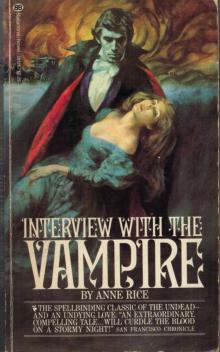 Interview with the Vampire
Interview with the Vampire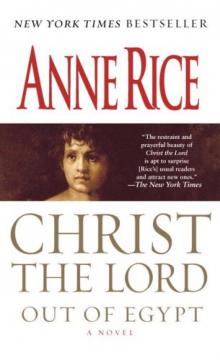 Christ the Lord: Out of Egypt
Christ the Lord: Out of Egypt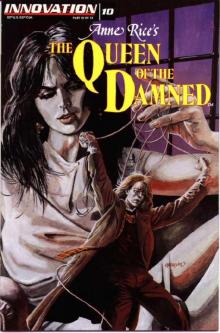 The Queen Of The Damned
The Queen Of The Damned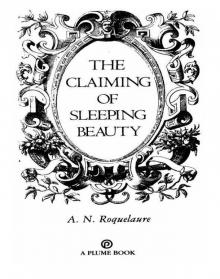 The Claiming of Sleeping Beauty
The Claiming of Sleeping Beauty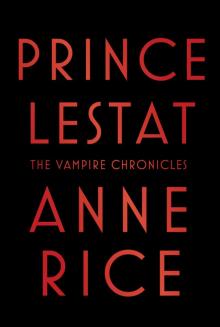 Prince Lestat
Prince Lestat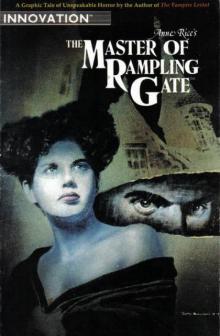 The Master of Rampling Gate
The Master of Rampling Gate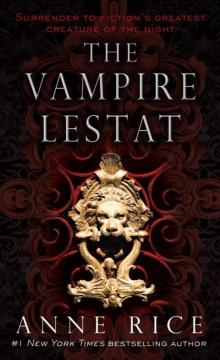 The Vampire Lestat
The Vampire Lestat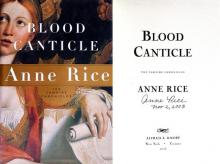 Blood Canticle
Blood Canticle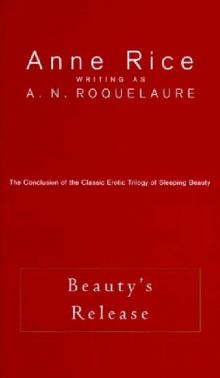 Beauty's Release
Beauty's Release Pandora
Pandora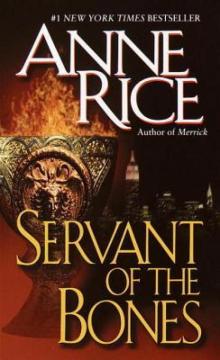 Servant of the Bones
Servant of the Bones Of Love and Evil
Of Love and Evil Beauty's Punishment
Beauty's Punishment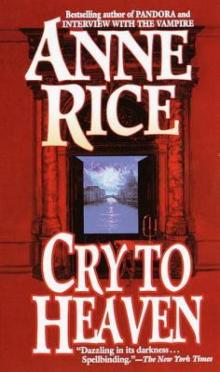 Cry to Heaven
Cry to Heaven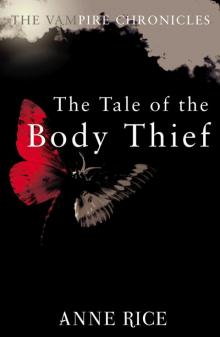 The Tale of the Body Thief
The Tale of the Body Thief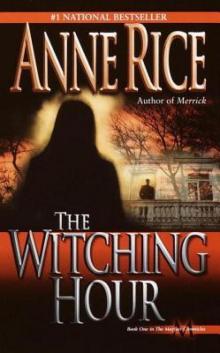 The Witching Hour
The Witching Hour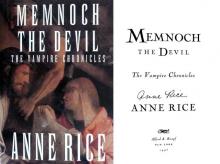 Memnoch the Devil
Memnoch the Devil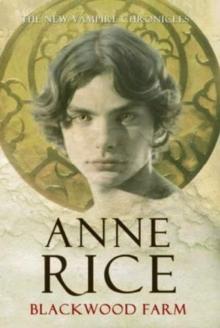 Blackwood Farm
Blackwood Farm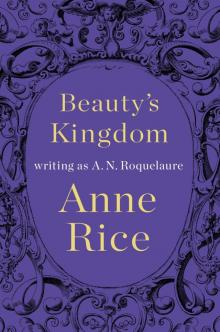 Beauty's Kingdom
Beauty's Kingdom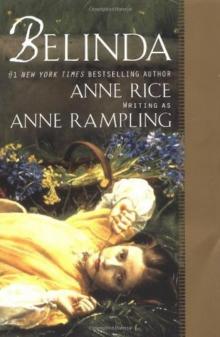 Belinda
Belinda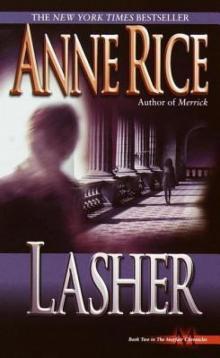 Lasher
Lasher Vittorio, the Vampire
Vittorio, the Vampire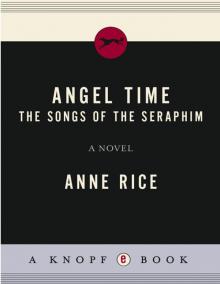 Angel Time
Angel Time Called Out of Darkness: A Spiritual Confession
Called Out of Darkness: A Spiritual Confession Blood And Gold
Blood And Gold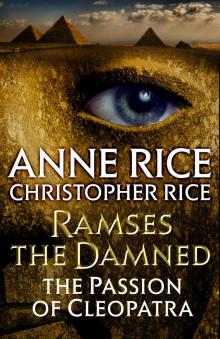 The Passion of Cleopatra
The Passion of Cleopatra Taltos
Taltos Exit to Eden
Exit to Eden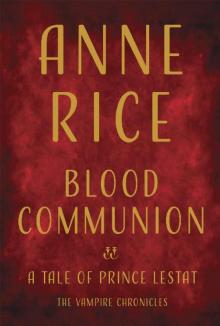 Blood Communion (The Vampire Chronicles #13)
Blood Communion (The Vampire Chronicles #13) The Wolf Gift
The Wolf Gift The Wolves of Midwinter
The Wolves of Midwinter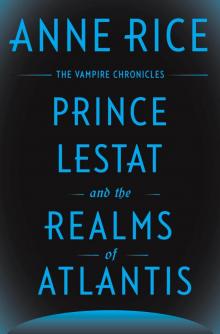 Prince Lestat and the Realms of Atlantis
Prince Lestat and the Realms of Atlantis The Ultimate Undead
The Ultimate Undead The Vampire Lestat tvc-2
The Vampire Lestat tvc-2 The Road to Cana
The Road to Cana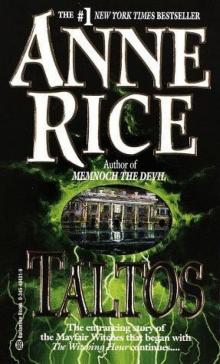 Taltos lotmw-3
Taltos lotmw-3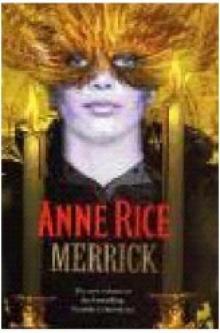 Merrick tvc-7
Merrick tvc-7 Called Out of Darkness
Called Out of Darkness Pandora - New Vampires 01
Pandora - New Vampires 01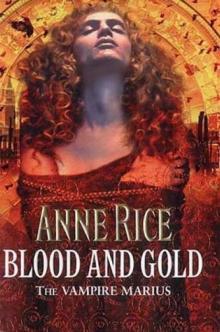 Bllod and Gold
Bllod and Gold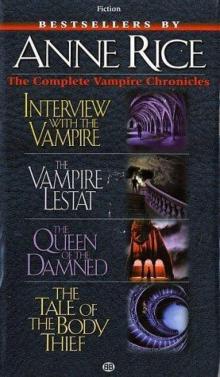 The Queen Of the Damned: Vampire Chronicles
The Queen Of the Damned: Vampire Chronicles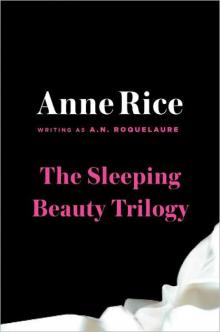 The Sleeping Beauty Trilogy
The Sleeping Beauty Trilogy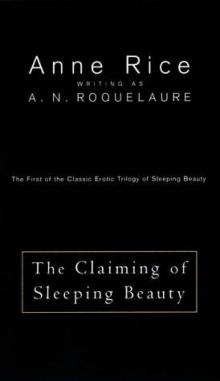 The Claiming of Sleeping Beauty b-1
The Claiming of Sleeping Beauty b-1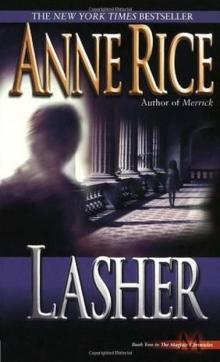 Lasher lotmw-2
Lasher lotmw-2 The Tale of the Body Thief tvc-4
The Tale of the Body Thief tvc-4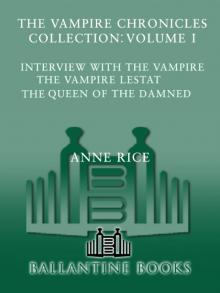 The Vampire Chronicles Collection
The Vampire Chronicles Collection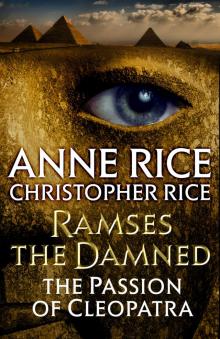 Ramses the Damned
Ramses the Damned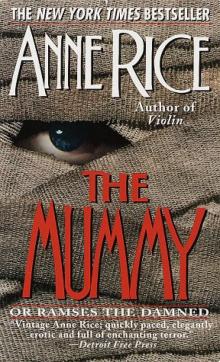 The Mummy - or Ramses the Damned
The Mummy - or Ramses the Damned Vittorio, The Vampire - New Vampires 02
Vittorio, The Vampire - New Vampires 02 The Vampire Armand tvc-6
The Vampire Armand tvc-6 Queen of the Damned tvc-3
Queen of the Damned tvc-3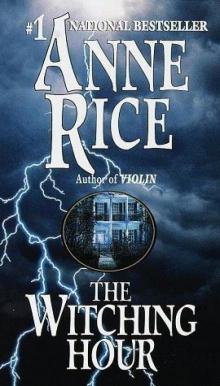 The witching hour lotmw-1
The witching hour lotmw-1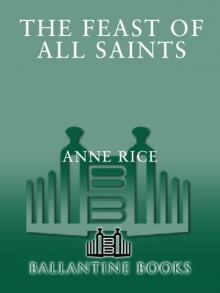 Feast of All Saints
Feast of All Saints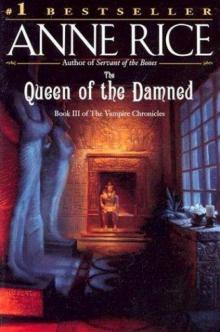 Queen of the Damned
Queen of the Damned The Wolves of Midwinter twgc-2
The Wolves of Midwinter twgc-2 The Mummy
The Mummy Blood and Gold tvc-8
Blood and Gold tvc-8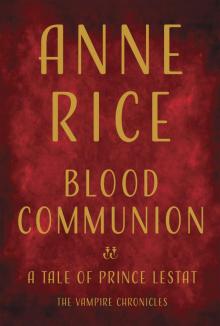 Blood Communion
Blood Communion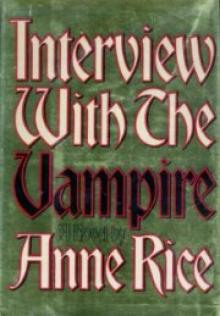 Interview with the Vampire tvc-1
Interview with the Vampire tvc-1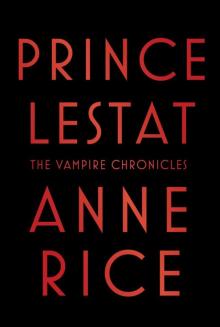 Prince Lestat: The Vampire Chronicles
Prince Lestat: The Vampire Chronicles